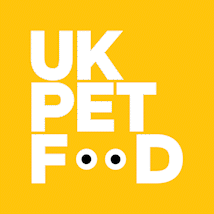Hamster Nutrition
Hamsters are adventurous and energetic creatures – making popular pets. There are over 20 breeds of hamster but the most common pets are Syrian (Golden) hamsters and Dwarf breeds. If they are well cared for by following the correct hamster nutrition and home guidelines, they will live for around two years.
Hamsters are omnivorous pets who love to hoard food. The best feeding time for hamsters is in the evening when they start to wake up. Complete foods specifically for hamsters are available but here are some nutrition tips to bear in mind.
Hamster Feeding Tips
- Hamsters need feeding every day, and as they are nocturnal creatures, an evening feed is ideal.
- A heavy, earthenware bowl is best to keep the food dry – it will need to be cleaned daily.
- Hamsters have delicate cheek pouches so you need to be careful how you feed them. Do not give hamsters foods that contain whole oats, as these can puncture their cheek pouches. You should also avoid sticky foods, as these stick to their pouches.
- Hamsters have teeth which grow continually. If fed unsuitable foods, they fail to wear their teeth sufficiently and this can lead to painful dental conditions. Plenty of hay and safe twigs to chew are a good idea. Failure to feed your hamster with the right diet can result in serious dental disease.
- If in doubt as to whether something is safe to feed your hamster, it is best to avoid it.
- Fresh, clean water must be always available for your pet hamster. Drinking bottles designed for hamsters work best, just make sure you check the bottle frequently to see that it always has water in it. Change your hamster's water daily to ensure that it is always fresh and that the bottle is clean. You should also check that your hamster can reach and drink from the bottle with ease.
- There are a number of nutritionally balanced diets for hamsters on the market. Manufacturers have experts available to provide you with advice on what you should buy for your pet and how to feed, so contact them directly for further advice on specific products.
Hamster Favourite Foods
- In their natural habitat hamsters eat grasses, seeds and grain. Although they are often mistaken as herbivores, they are omnivores and need protein in their diet to keep them healthy.
- Your hamster may like an occasional treat, such as a small piece of fruit or vegetable – but too much green food can cause diarrhoea. Don't feed too many treats as even hamsters can eat too much and become overweight, which can lead to many other health problems.
